Skip to content
- Workshops 2024
- F-TRANSFER, Facilitating continuous educaTion and tRaining through AI iN SoFtware EngineeRing
- https://www.cs.ubbcluj.ro/~avescan/f-transfer/
- The workshop was co-financed by the SANER conference and the ORCHESTRA project.
- When?
- Where?
- held within SANER 2024 conference
- Program
- https://www.cs.ubbcluj.ro/~avescan/f-transfer/index.php/program/
- Workshops 2023
- Nicoleta PFEFFER-BARBELA, MSc., founder citySTILLE Mindfulness Center Vienna
- Title: Focus on mind. Mindfulness science and practice. From mind overload to presence, stillness & focus in research teams, Poster FocusOnMind
- When?
- Where?
- FSEGA Building, Room C404
Teodor Mihali Street, No. 58-60, 400591, Cluj-Napoca, Romania
- Abstract: In today’s world awash in distraction, stress, and information overload—all of which can affect focus, creativity, and well-being – mindfulness becomes a valuable tool for supporting researchers and learners. Research demonstrates that mindfulness improves a person’s ability to concentrate (Sedlmeier et al., 2012), decreases the fear of being judged, and enhances open-minded thinking while reducing aversive self-conscious thinking (Brown, Ryan, & Creswell, 2007). These points map directly onto key characteristics of creative habits of working, thinking, and being in the world, including relaxation or flow states (improved concentration), risk-taking (requiring a lack of fear about judgment), and curiosity or open-mindedness/openness to experience (reducing self-conscious experience) (Prabhu, Sutton, & Sauser, 2008). These effects suggest that mindfulness supports the skills associated with focus and creativity.
We invite you to have a glimpse into some neuroscience facts, and experience stillness of mind that naturally leads to focus and inspiration!
- Bio: Nicoleta Pfeffer-Barbela bio
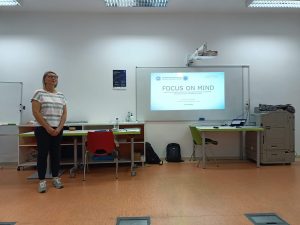
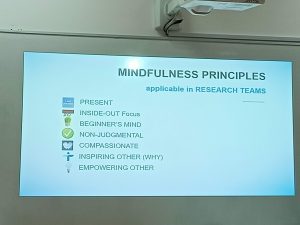
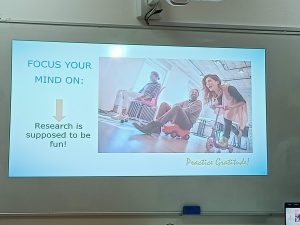
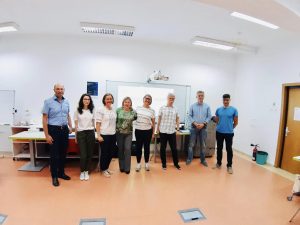
- Prof. dr. Alexander Egyed
- Title: Evolving Product Lines – One Product at a Time, Poster EvolvingProductLines AEgyed
- When?
- Where?
- FSEGA Building, Room C335
Teodor Mihali Street, No. 58-60, 400591, Cluj-Napoca, Romania
- Online participation: link Teams, Click here to join the meeting
Meeting ID: 323 236 510 829
Passcode: U7K5SK
- Abstract: To keep pace with the increasing demand for custom-tailored software systems, companies often apply a practice called clone-and-own. Thereby, a company builds an initial version of a system and then copies and adapts it with every new customer. Instead of a single, configurable system the company ends up with a portfolio of multiple, similar variants. Clone-and-own has widespread industrial use because it requires no major upfront investments compared to infrastructures facilitating reuse. Yet, it lacks a methodology for systematic reuse and for addressing the resulting feature interaction problems. This talk proposes ECCO (Extraction and Composition for Clone-and-Own), a novel approach to actively support software engineers in applying clone-and-own. A software engineer selects the desired features and ECCO finds the proper software artifacts for the copying step and then guides the software engineer during the manual completion by hinting which software artifacts may be missing or may need adaptation. We evaluated our approach on 4 case studies, covering 305 variants having up to 344KLOC, and found that precision and recall of composed products quickly reached a near optimum.
- Bio: Alexander Egyed is a Full Professor and Chair for Software-Intensive Systems at the Johannes Kepler University, Austria (JKU). He received a Doctorate degree from the University of Southern California, USA in 2000 and then worked for industry for many years before joining the University College London, UK in 2007 and JKU in 2008. At JKU, he built up a research institute which has a staff of over 20 people today. He is most recognized for his work on software and systems design – particularly on variability, consistency, and traceability. Dr. Egyed has published over 200 refereed scientific books, journals, and conferences with over 10K citations to date. He was recognized a Top 1% scholar in software engineering in Communications of the ACM, Springer Scientometrics, and Microsoft Academic Search. He was also named an IBM Research Faculty Fellow in recognition to his contributions to consistency checking, received a Recognition of Service Award from the ACM, numerous Best Paper Awards (COMPSAC, MODELS, ICSSP, WICSA, etc.), and an Outstanding Achievement Award from the USC. Dr. Egyed served as program chair/steering committee member (ASE, FASE, MoDELS,…) and as editorial board member (TSE, SoSyM,…).
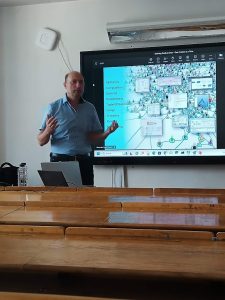
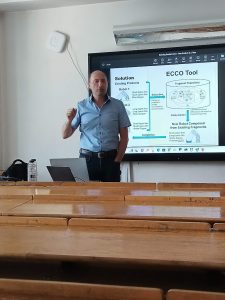
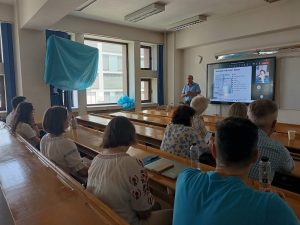
- Workshops 2022
- Prof. dr. Alexander Serebrenik
- Title: Gender and Community Smells, poster Poster presentation
- When?
- Wednesday, 9 November 2022
- Where?
- FSEGA Building, Room C335
Teodor Mihali Street, No. 58-60, 400591, Cluj-Napoca, Romania
- Online participation: Teams meeting
- Abstract: Community smells are patterns indicating suboptimal organization and communication of software development teams that have been shown to be related to suboptimal organisation of the source code. Given a long standing association of women and communication mediation, we have conducted a series of studies relating gender diversity to community smells, as well as comparing the results of the data analysis with developers’ perception. To get further insights in the relation between gender and community smells, we replicate our study focusing on the Brazilian software teams; indeed, culture-specific expectations on the behavior of people of different genders might have affected the perception of the importance of gender diversity and refactoring strategies when mitigating community smells. Finally, we extend the prediction model by including variables related to national diversity and see how the interplay between national diversity and gender diversity influences presence of community smells.
- This talk is based on a series of papers published in 2019-2022 and co-authored with Gemma Catolino, Filomena Ferrucci, Stefano Lambiase, Tiago Massoni, Fabio Palomba, Camila Sarmento, and Damian Andrew Tamburri.
- Bio: Alexander Serebrenik is a full professor of social software engineering at the Eindhoven University of Technology, The Netherlands. His research goal is to facilitate evolution of software by taking into account social aspects of software development. His work tends to involve theories and methods both from within computer science (e.g., theory of socio-technical coordination, methods from natural language processing, machine learning) and from outside of computer science (e.g., organisational psychology). He is actively involved in organisation of scientific conferences and is member of the editorial board of several journals. He has won multiple best paper and distinguished reviewer awards.
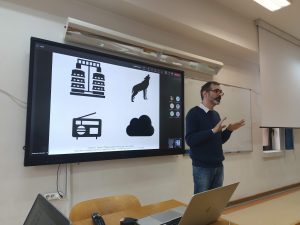
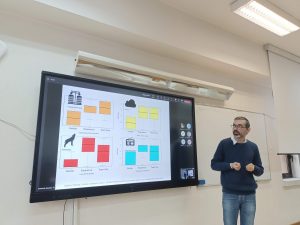
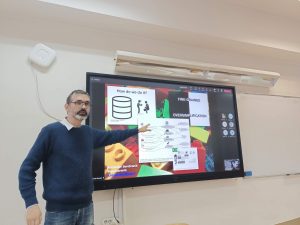
- Assoc. prof. dr. Danny Dig
- Title: Learning and Applying Best Practices for Code Evolution, poster Poster presentation (updated)
- When?
- Thursday, 10 November 2022
- Where?
- Online participation: Teams meeting
- Abstract: Our community is at a crossroads now. Despite the extraordinary rise in popularity of Python-based ML systems, they do not benefit from the advances in the software evolution field. The science and tooling for developing and evolving ML code-bases is significantly behind. To reduce this gap, we conducted the first and most fine-grained study on code change patterns in a diverse corpus of 1000 top-rated ML systems. We triangulated our findings with surveys of hundreds of ML engineers and reveal four major trends of how ML engineers evolve their code. Then we designed, implemented and evaluated a new generation of Data-driven code transformation tools that transplant the best practices for code evolution into new projects. More than 90% of the patches that we submitted to famous open-source projects like TensorFlow and PyTorch were accepted, showing the usefulness and applicability of our tools.We launch a call to action for researchers, tool builders, ML library vendors, developers, and educators. This will inspire and equip you so that you can make a difference, with people who make a difference, at a time when it makes a difference. I will conclude with
the lessons we are learning from working with industry, and invite colleagues in academia and students to join forces to make a lasting impact through our recently-launched Center on Intelligence for IoT systems: http://ppicenter.org
- Bio: Danny Dig is professor in CS at University of Colorado at Boulder, and an adjunct professor at University of Illinois at Urbana-Champaign.He enjoys research in Software Engineering, with a focus on interactive program analysis and transformations that improve programmer productivity and software quality. He successfully pioneered the field of refactoring in cutting-edge domains including ML, mobile, concurrency and parallelism, component-based, testing, and end-user programming. He earned his Ph.D. from the University of Illinois at Urbana-Champaign where his research won the best Ph.D. dissertation award, and the First Prize at the ACM Student Research Competition Grand Finals. He did a postdoc at MIT.He (co-)authored 60+ journal and conference papers that appeared in top places in SE/PL. His group’s research was recognized with 9 paper awards at the flagship conferences in SE, 4 award runner-ups, and 1 most influential paper award. He received the NSF CAREER award, the Google Faculty Research Award (twice), and the Microsoft SE Innovation Award (twice). With his students, they released dozens of software systems. Some of these are shipping with the official release of the popular Eclipse, NetBeans, Android Studio, and Visual Studio development environments which are used daily by millions of developers. His group’s research is funded by NSF, Boeing, IBM, Intel, Google, Microsoft, NEC, and Trimble. He travels all over the world to inspire and equip the next generation of technical leaders.
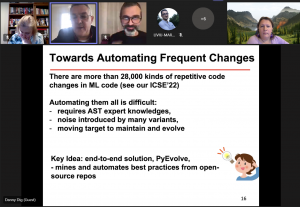
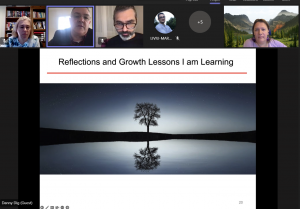
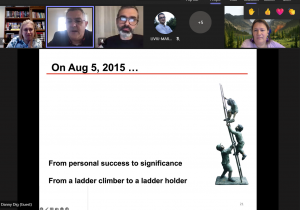
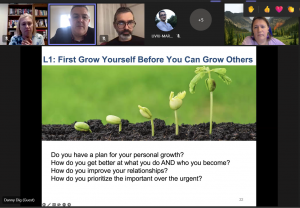
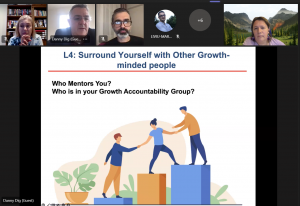
Scroll to top














